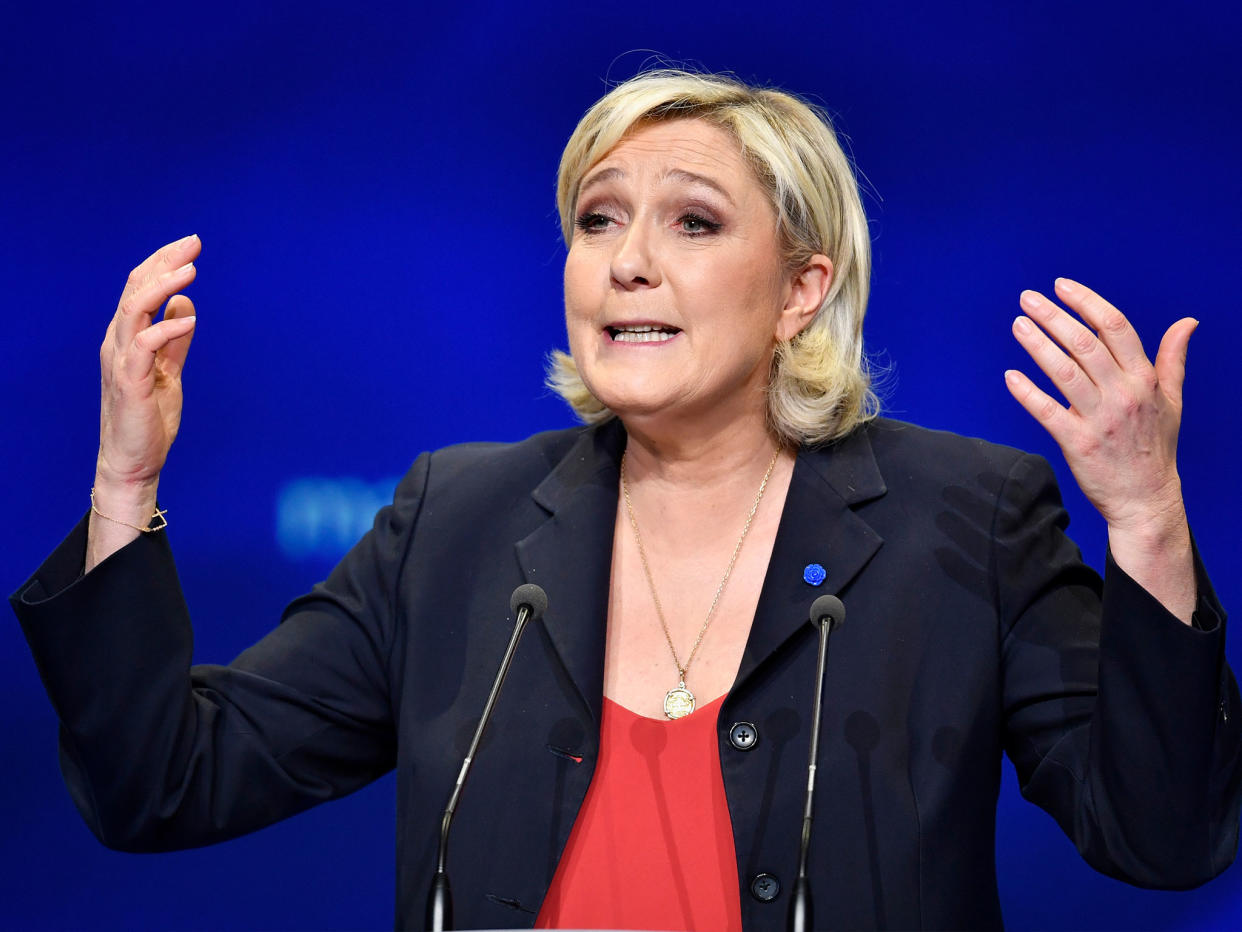French election result shows right-wing populist wave is not sweeping Europe

The results of the first round of the French election have been widely portrayed as a rejection of traditional politics with two anti-establishment outsiders coming out on top. This is true up to an extent, but the most important fact to emerge from the outcome is that it is a rebuttal of claims that a right-wing populist wave is sweeping through Europe.
Marine Le Pen’s support was meant to surge at this time with a rising antipathy towards the EU; huge concern about flow of refugees and murderous Islamist terrorism. The voting took place just a few days after a terrorist attack in the centre of Paris which, according to some reports, further added to her support.
But Ms Le Pen came second. She got 21.4 per cent of the vote. Emmanuel Macron, the centrist pro-EU candidate, beat her with 23.9 per cent. To put his in context, in 2002 Marine Le Pen’s father, Jean-Marie Le Pen, got 17.9 per cent of the vote in the first round while Jacques Chirac came top with 19.8 per cent. And this was at a time when Mr Le Pen did not have anything like the level of fear factor his daughter now has to exploit.
Mr Le Pen’s success at the time was described as a “shocking show of political disenchantment” and an “implosion of establishment politics in France” and, inevitably, something that will ensure “things will never be the same again”. In the event, come the second round, Mr Chirac romped home with 82.2 per cent of the vote, with Mr Le Pen dropping to 17.2 per cent.
Marine Le Pen may well do better than her father in 2002, but, it seems, only just. The first opinion poll since yesterday’s round had Mr Macron beating her by 61 per cent to 39 per cent. The conservative François Fillon, who managed to get 19.9 per cent of the vote despite being mired in financial scandal, and Benoit Hamon, the Socialist, with 6.9 per cent have both asked their supporters to swing behind Mr Macron. Some of the 19.6 per cent of Jean-Luc Mélenchon may go to Ms Le Pen, but his populism from the left remains different from the hard-right Front National.
The fact remains that the right-wing wave which was supposed to sweep through Europe after Brexit and the coming of Donald Trump has not happened. Norbert Hofer and Geert Wilders both fared worse than expected in Austria and the Netherlands before the French first round results.
The EU was very much an issue in Austria and Netherlands as it is in France. It was a delicious irony in the Austrian election that the intervention of Nigel Farage played a key role in Mr Hofer’s loss in Austria. The inability of the garrulous pub landlord of British politics to keep quiet cost the Freedom Party victory.
That was certainly the view of the Austrian right-wingers. Mr Farage had taken it upon himself to declare that Mr Hofer would hold a referendum on leaving the European Union after he had won. “That did not help us, it hindered us,” was the angry complaint by Anton Mahdalik, a senior party member. “We were very aware that a majority of Austrians support EU membership”.
Mr Hofer described Mr Farage’s unsolicited intervention as a “crass misjudgement”. He was so worried by the pronouncements of the Ukip man that he put out a statement on the eve of the poll saying, “I would ask him not to interfere in Austria’s internal affairs. It doesn’t fill me with joy when someone meddles from outside.” His country, he pointed out, had no desire to emulate Brexit. “It is not something I want. We need to build a stronger union.”
The EU, and those who support it, are of course, delighted by the French election result. Jean-Claude Juncker, the European Commission President, wished Mr Macron well in the second round of the French presidential election, and celebrated the rallying of forces against those “seeking the Union’s destruction”. Angela Merkel’s spokesman, Steffen Seibert, declared: “Good that Emmanuel Macron was successful with his course for a strong EU and social market economy.”
In Britain the Labour party sent Mr Macron its congratulations. But more important for it are the low numbers for Mr Mélenchon, despite the late surge. Mr Corbyn campaigning as a populist of the left may not work here either.
The Tories and Downing Street said they would remain neutral between the progressive liberal Mr Macron and the racist, crypto-fascist Ms Le Pen. Mr Macron has already warned that the UK can expect no concessions in Brexit negotiations if he is elected, vowing to take a rigid line on access to the EU’s single market and the powers of the European Court.
Mr Macron’s victory came at the same time as it emerged that Donald Trump is about to change directions yet again, in yet another aspect of his foreign policy. A trade deal with the EU, says the White House, is now much more of a priority than a trade deal with Britain.
The expected arrival of Mr Macron at the Élysée will expose the holes in Theresa May's boast that Britain somehow holds the whip hand in the divorce from the European Union. It is Brexit UK which is swimming against the tide in Europe and the price for this rises by the day.

 Yahoo News
Yahoo News 